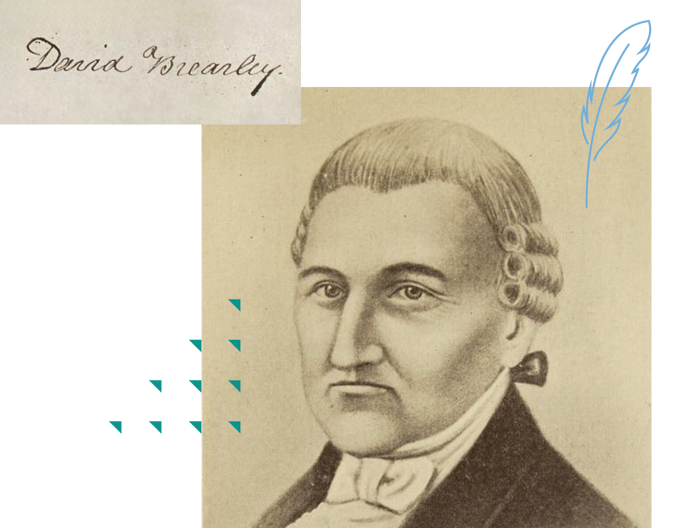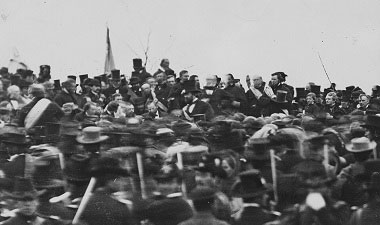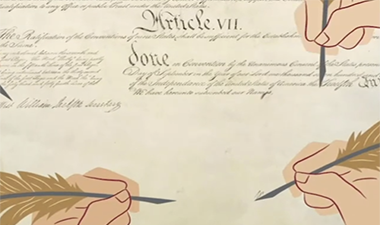Summary
David Brearley was named Chief Justice of the Supreme Court of New Jersey and served at the Constitutional Convention, where he opposed proportional representation in both houses.
David Brearley | Signer of the Constitution
2:26
Biography
David Brearley was born in New Jersey in 1745. He attended, but did not graduate from, the College of New Jersey [later Princeton University]. Until 1776, he practiced law in Allentown.
His early opposition to British policies appears to have been a family tradition for in the 1740s, his father had been arrested for his attacks on British rule. In 1776, Brearley participated in the convention that drew up New Jersey’s state constitution, and soon afterward, he joined the state militia. He saw combat at Brandywine, Germantown, and Monmouth, and emerged from the military as a colonel. In 1779, he was named Chief Justice of the Supreme Court of New Jersey and served for a decade. He presided over a precedent-setting case, Holmes v. Walton, ruling that the judiciary had the authority to declare laws unconstitutional. It would not be until 1803 that the U.S. Supreme Court, under John Marshall, affirmed this power of judicial review.
Brearley was one of four New Jersey delegates to the Constitutional Convention. William Pierce judged him a good man, but not a brilliant one. During the debates, he followed the lead of fellow delegate, William Paterson, in opposing proportional representation in both houses of the legislature. As Brearley put it, if the Senate and the House were based on population, then “the large states will carry everything before them” and the small states “will be obliged to throw themselves constantly into the scale of some large one in order to have any weight at all.”
Brearley’s most significant role came when he was appointed to the Committee on Postponed Parts [or Postponed Matters]. This committee dealt with a panoply of unrelated issues, including taxation, war-making, patents and copyrights, relations with Native American tribes, the president’s term of office, and whether money bills must originate in the House. The committee also created the vice presidency, an office devoid of any function but two: to succeed to the presidency if necessary and to preside over the Senate. The committee is best remembered today for its endorsement of the Electoral College.
Brearley signed the constitution and returned home to serve as the chair of the state ratifying convention. New Jersey was the third state to ratify, trailing Delaware and Pennsylvania by only a few days. This was Brearley’s last political role.
On September 25, 1789, President Washington nominated him for a seat on the U.S. District Court for the District of New Jersey and the Senate confirmed him that very day. He died less than a year later of an illness that had plagued him for several years. He was only 45 years old.








